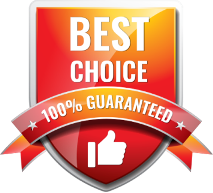The Concept of Business Ethics
The Concept of Business Ethics
Introduction
The theme of business ethics has exploded in the recent past in terms of volume and significance. Consequently, it turns out that either business ethics is inadequately defined or some definitions are abstract in nature. Some of the notable definitions include right from wrong, good from bad, ethical and unethical, moral or amoral and so forth. Owing to the absolute bulkiness and assortment of the literature on business ethics, a review article would be warranted. What motivates a review article is because of a lacking standard definition of the phrase business ethics and also for more clarity in the field of business. While most journals deal with the American reality, the knowledge gain from this synthesis may be applicable in other countries. This paper reviews a broad range of literature on the definition of business ethics based on ethical theories; utilitarianism, Kantianism, social contract theory, virtue ethics, and Asian Confucius.
Definitions of Business Ethics
According to Bruner, Eades and Schill (2009), the moral indifference of all professional whether lawyers, physicians, or educators and business directors – has come under close inspection in modern times. It is this renewed moral concern that epitomizes the reappearance of a traditional issue: the dearth of ethical behavior showcased by many individuals in positions of power. Bentham (2000) states that while the current business environment does not have a direct legal issues, actors in the business environment ought to make decisions with regards to what is right and wrong. Cavico (2015) asserts that task of morality to differentiate between good and bad business practices. While the task of trying to differentiate right from wrong is an uphill task, Andrews, indicate that most unethical issues occur in gray areas where business people tend to stumble.
Neubert and Bruno (2016) contend that majority of business pronouncements entail choices between two desirable outcomes. Nonetheless, an imminent challenge to moral decision making is that in most cases, good and evil are represented as two products, particularly where a desired outcome is accompanied by a negative one. This is applicable to the toxic waste and exhaustion of resources necessitated by high living standards and technology. Marketing, for instance, has been closely linked to moral abuse in business companies. This may be due to the fact that marketing, which is a function of business, is concerned with relating to customers and ensuring satisfaction is achieved in whichever form, whether hype or propaganda to generate profits for the company.
van Prooijenand Naomi (2015).indicates that immoral acts have a long tradition, for instance, the first man Adam ate the forbidden fruit, while Cain executed his brother. According to Engstrom (2009), Greek philosophers dedicated much of their time to formulate conjectures of ethics, they were more concerned with approving ethical standards that society should follow. In a nut shell, a positive vantage point of ethics endeavors to illustrate and explain how people should conduct themselves in moral situations. Beauchamp and Bowie (2009), understood ethics as an exploration onto concepts of what is right and wrong and into what is moral and immoral, and hence is a probe into what should set the standards so that any deviation away from the what people should not do, would then be a wrong. Nonetheless, this also meant that any action that lies within the confines of what the majority member of society is allowed to do, would be ethical or a right (Romar 2004).
According to Runes (1964) a moral behavior refers to an impartial or accurate standard of conduct between parties in a given circumstance. In the same breadth, Barry (1979) describes ethics as the study of what entails proper and improper human conduct, in relation to actions and values. While ethics according to DeGeorge (1982) is the study of morality, the author cites that morality is a phrase employed to cover practices and activities that are viewed as right and wrong, the ethos that inform activities, and premise anchored, nurtured, or pursued by such activities and practices.
According to Duffy (2017), the moral view of any society is associated with the ethos or time-honored customs by that very community as the most appropriate way to act. The impression is that if walking nude in community A is the norm other than the exception, any persons that wear clothes would be viewed as a rebel or insane for that matter. In this case, morality of society is governed by laws that punish or prohibit activities that border the extreme (Duffy 2017). Taylor (1975) examines ethics as an exploration into the nature and tenets of morality, thus rules or standards that govern how people interact. On the other hand, Vitell (1986) utilizes Taylor’s definition to describe marketing ethics as a probe into the character and basis of moral verdicts, standards and values linked to business pronouncements and marketing circumstances. From all these definitions, it turns out that the phrase ethics can be substituted for morals.
Using theories to evaluate ethics
Utilitarianism
Conventionally, most theorists hold the view that the moral correctness of an action can be established by considering its outcomes. In this regard, if the outcome is good then the act is morally upright, but if the outcome is bad, the act is unethical. According to Eggleston (2012) this definition justifies utilitarianism theory, which asserts that the best ethical choice should always benefit the majority. The application of utilitarianism from a business perspective, for instance, a company that decides to shift its manufacturing plant from country A to country B takes away jobs from country A, which leaves people disenfranchised economically. Nonetheless, provided the benefit of relocation outweigh jobs lost in country A, then that act would be viewed as ethical. Scarre (2002) affirms that utilitarianism suffers from a number of shortcomings, in quantifying the losses or the negative outcomes that befall the minority.
In business ethics, the theory would require that for any managerial decisions to be deemed ethical or moral it needs to benefit the stakeholders (Mill 2016). What becomes apparent is that just like investors, employees play an integral role to the wellbeing of any company, hence, in the event of wanting to downscale the workforce due to debts or other reasons, employees are often the first casualty. Mack (2004) hints that sacrificing employees for the sake of a lean and efficient company that then generate big profits for investors can be ethical.
Kantianism
Beauchamp, Bowie and Arnold (2009) definition of business ethics affirms that one is morally upright when he/she abide by principles embraced by the majority, which is akin to Kantianism theory. Mill (2016) affirms that unlike utilitarianism where people can act unethically to justify the outcome that have a positive impact on the larger population, Kantianism reiterates that people have an obligation that which the large society perceive to be right based on the social standards that have been laid. In this respect, if an individual’s actions lead to bad outcomes, this would squarely an aspect of bad morals. According to Powers (2005), Kantianism view ethics as the realization of the ultimate good for the benefit of everyone as opposed to Utilitarianism where the ultimate good does not have to incorporate everyone except the majority.
Thus, under Kant’s approach business ethics would require managers to express a sense of duty and remain focused on enacting any decisions based on the duty rules (Sørensen 2008). Business organizations can, for instance, put in place ethical codes that would guide the organization towards a given end. In this respect, ethical codes should always be a point of reference every time a company executes certain business dealings or even employee to employee relations or employee to client relations. With a structured ethical code, values such as honesty, candor, respect, sincerity, curiosity and fair play can help organizations enhance their vertical and horizontal positions for the ultimate good of all. Again, companies may utilize Kantianism to institute a corporate social responsibility (CSR), which is morally driven for the general wellbeing of communities in which companies operate (Engstrom 2009). Although change is often a complex thing to implement, conflicts that arise on the basis of ethics should be dealt with openly to preclude a permissive culture from creeping in.
Furthermore, Kant developed the categorical imperative criterion to solve this problem. Betzler (2008) asserts that the categorical imperative means a person needs to enact their desires in the universal world and deem whether the desire is conservable in the world. Hence, business ethics would require people to abide by the set standard rules. However, business ethics would need the managers to think about their decision on whether it meets society’s norms before enacting their choices (Powers 2005). The approach ensures that business ethics only make decisions that follow duty and morally acceptable to the stakeholders. For example, a business may wish to steal the revenues of its competitors to increase their market share. After the thought, the business managers need to actualise their thoughts in the real world and realise that it’s impossible and unethical.
Social Contract Theory
According to the social contract theory, people should surrender their rights, freedoms and power to a single governing entity and get certain benefits in return (Silvers and Leslie 2005). The state may act unilaterally at the expense of the law abiding citizen, which is unethical. According to Crane and Dirk (2015) corporate organizations tend to thrive because the stakeholders, who include investors, employees and customers, sacrifice their capital and time to realize this objective. On the contrary, organizations just like governments have a choice to act unethically to overwork employees and reap the most out of their toil. In addition, organizations may choose to act unethically. They may prey on investors, by falsifying figures and misrepresenting the balance sheet to create an impression that the business is booming when the opposite is true.
Virtue Ethics
According to Bruner, Eades and Schill (2009), virtue ethics entails acceptable behaviors for humans to be successful. In business, ethical behaviour is not just about preventing adverse outcomes; instead virtue ethics should highlight the qualities of the businessmen (Neubert and Bruno 2016). Nonetheless, it is necessary to taken into consideration if the actions are associated with a virtuous individual (Crane and Dirk 2015). This perception demonstrates that individual happiness is consistent with virtuousness and not purely duty or utility. It recognizes that immoral actions are corrupting while virtue contributes to successful human (Bruner, Eades and Schill 2009).
Virtue ethics also refers to desirable actions like courage. For that reason, a virtuous person has to strike a balance in decision formulation. Schwartz (2017) holds the view that virtuous persons do not use any rules in decision making; however, they attempt to formulate decisions that are related to a certain form of excellence, which involves exercising ethical judgment based on consistency, integrity, fairness, temperance, courage and wisdom.
Confucius Perspective
Tang (2015), for instance, examine the Confucian philosophy as the natural order and harmony that links various aspects of life that includes; man, nature, and heaven. Moreover, Tang (2015), implies that people should be ethical first before they taking up any decision-making process. As a result, business ethics would need to stakeholders with decision making roles to self-develop their internalised values.
Personal view of Ethics
I would define ethics as the moral standing that represents the views of everyone without equivocation. My definition of ethics corroborates with the biblical verse that says do unto others what you expect them to do unto you.
Conclusion
Business Ethics clarifies each party’s duties in their business environment. It is also a tool for helping people resist the human weaknesses of greed and selfishness, and practice being caring and respectful to others. In regards to the various ethical theories discussed the true definition of business ethics should be; conducting business activities with high ethical and moral standards to ensure that all stakeholders are treated with equality, fairness and justice.
References
Beauchamp, L., Norman L. and Denis G. 2009. Ethical Theory and Business. Pearson.
Bentham, J. 2000. An introduction to the principles of morals and legislation. Kitchener, ON: Batoche Books, 2000. Print
Betzler, M, ed. 2008. Kant’s ethics of virtue. Walter de Gruyter
Bowie, E. 2002. A Kantian approach to business ethics. A companion to business ethics, pp. 3-16.
Barry, V.: 1979, MoralIssues in Business (Wadsworth Publishing Co., New York), 39-70.
Cavico, J. 2015. JP Morgan Recruitment Practices in China: Legal Networking or Illegal Bribery. Open Law and Ethics, pp. 30-42.
Crane, A, and Dirk M. 2015. Business ethics: Managing corporate citizenship and sustainability in the age of globalization. Oxford University Press
DeGeorge, Richard R.: 1982, Business Ethics, 2nd ed. (Macmillan Publishing, New York)
Duffy, J. 2017. The good writer: Virtue ethics and the teaching of writing. College English 79.3: pp. 229-250.
Eggleston, B. 2012. Utilitarianism. Elsevier
Engstrom, P. 2009. The form of practical knowledge: A study of the categorical imperative. Harvard University Press.
Mack, P. 2004. Utilitarianism ethics in healthcare. International Journal of the Computer, the Internet, and Management, 123, pp. 63-72.
Mill, S. 2016. Utilitarianism. Seven masterpieces of philosophy. Routledge. pp. 337-383.
Neubert, J., and Bruno D. 2016. Developing sustainable management theory: goal-setting theory based in virtue. Management Decision 54.2: pp. 304-320.
Powers, T. 2005. Deontological machine ethics. 2005 AAAI Fall Symposium on Machine Ethics.
Resick, J., et al. 2006. A cross-cultural examination of the endorsement of ethical leadership. Journal of Business Ethics63.4: pp. 345-359.
Romar, J. 2004. Managerial Harmony: The Confucian Ethics of Peter F. Drucker. Journal of Business Ethics: pp. 199–210.
Runes, Dagobert D.: 1964, Dictionary of Philosophy (Litdefields, Adams and Co, Patterson), 98-100.
Scarre, G. 2002. Utilitarianism. Routledge.
Schwartz, S. 2017. Business ethics: an ethical decision-making approach. Vol. 10. John Wiley & Sons.
Sen, A. 2017. Utilitarianism and welfarism. The Journal of Philosophy, pp. 463-489.
Silvers, A, and Leslie F. 2005. Justice through trust: Disability and the outlier problem in social contract theory. Ethics pp. 40-76
Sørensen, A. 2008. Deontology–born and kept in servitude by utilitarianism. Danish Yearbook of Philosophy. pp. 69-95.
Tan, C. 2015. Beyond rote-memorisation: Confucius’ concept of thinking. Educational Philosophy and Theory. pp. 428-439.
Tang, F, et al. 2016. How Confucius Influences Consumer’s View on Socially Responsible Corporations. Looking forward, looking back: Drawing on the past to shape the future of marketing. Springer, Cham. pp. 896-896.
Taylor, Paul W.: 1975, Principles of Ethics: An Introduction (Dickerson Publishing Co., Inc., Encino, California).
van Prooijen, A, and Naomi E. 2015. Does it pay to be moral? How indicators of morality and competence enhance organizational and work team attractiveness. British Journal of Management. pp. 225-236.
Vitell, Scott j. Jr.: 1986, ‘Marketing Ethics: Conceptual and Empirical Foundations of a Positive Theory of Decision Making in Marketing Situations Having Ethical Content’, unpublished dissertation, Texas Tech University.












